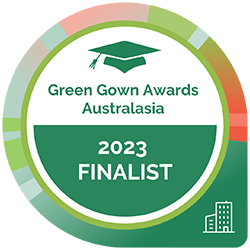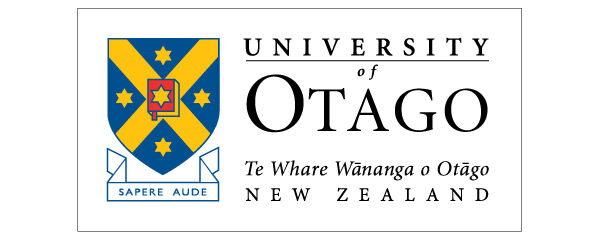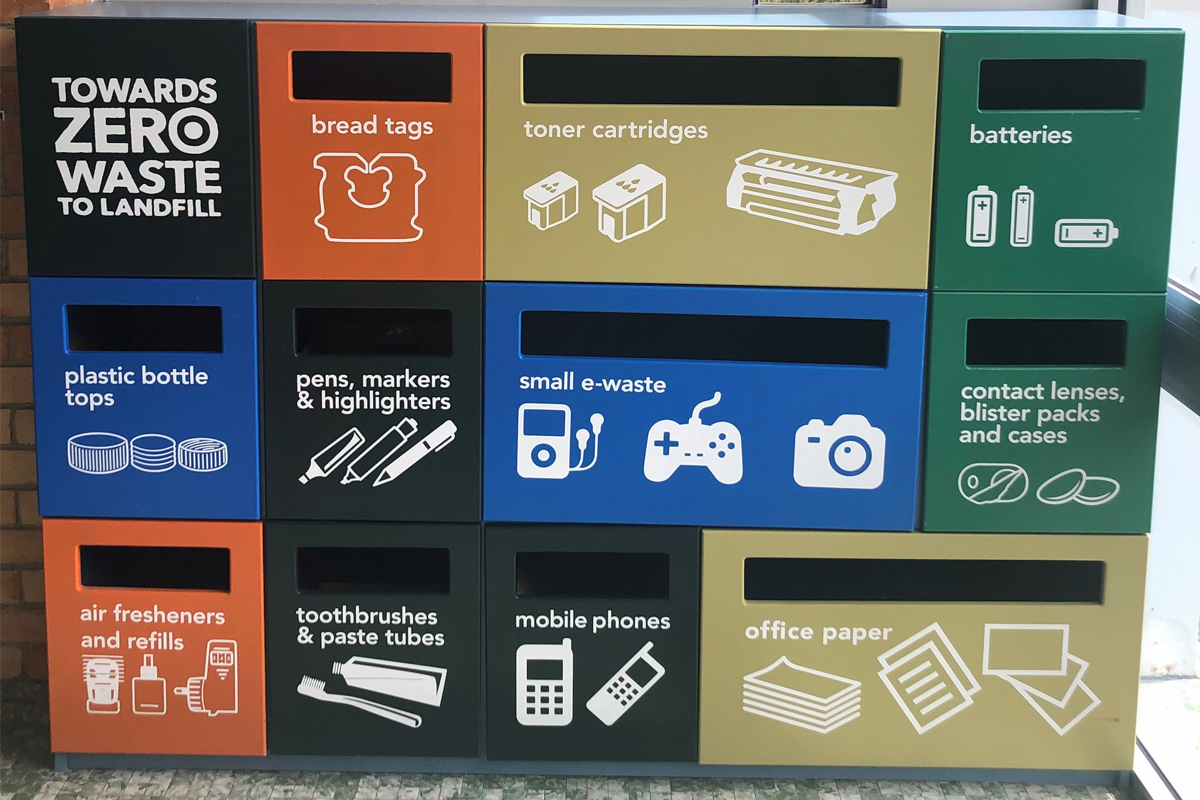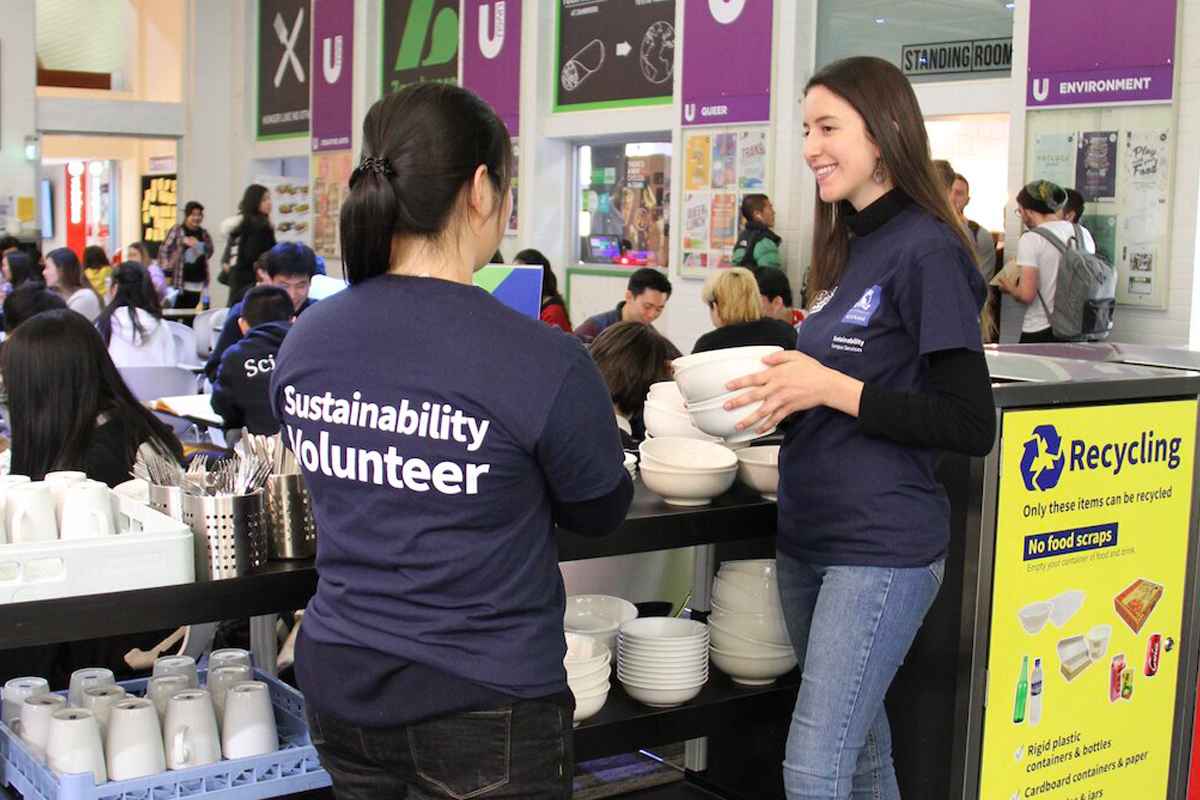Leading the Circular Economy category
The University of Otago hosts 20,000 students every year and most live close to the Dunedin campus, creating student-dominated areas of predominantly unfurnished rental properties, which sparks two bottle-necks. At the start of every academic year, the demand for flat furniture and homewares rises, while at the end of the academic year, the need for waste diversion increases.
Drop For Good is designed to meet both those needs, using the circular economy model. A huge focus is on activating students through challenging dumping behaviours and buying new, by offering free, easy alternatives for packing up and setting up their flats. Drop For Good is also part of the Sophia Charter, designed to build a kaupapa of community responsibility and wellbeing in the students’ residential areas.
Drop for Good has two parts:
- Drop For Good – the collection of unwanted items in November
- Shop For Good – the sale of items in February (the following year)
Part one: DROP FOR GOOD
The University of Otago’s Toitū te Taiao – Sustainability Office and the Otago University Students’ Association (OUSA) launch the initiative Drop for Good in November each year. This collaboration coordinates the massive task of collecting students unwanted flat goods, which can be picked up for free or dropped off at a collection point. The goods include:
- Clothing
- Furniture
- Appliances
- Homeware
- Books
This event involes promoting it, coordinating volunteer support from staff and students, hiring moving vehicles, and sourcing Personal Protective Equipment and food, while also preparting space for sorting and safely storing the massive amount of goods. Collecting and sorting requires hundreds of volunteer hours and many hands.
Part two: SHOP FOR GOOD
Shop for Good in February the following year includes promoting the event and setting up of a store that hosts all the goods from the prior year. All items are tidied up, minor repairs are made if needed, and all electrical items are tag tested to ensure they are in good working condition. No items are sold for more than NZD$20 as the purpose is not to make profit, but to get resalable goods back to students without straining their finances
Over the past three years the initiative has coordinated 1,110 volunteer hours, collected about 213 tonnes of goods and sold about 3,700 items. Through the circular economy model of Drop for Good and Shop for Good we make sustainable solutions more accessible and more inclusive for students with limited financial means, all while reducing waste to landfill.
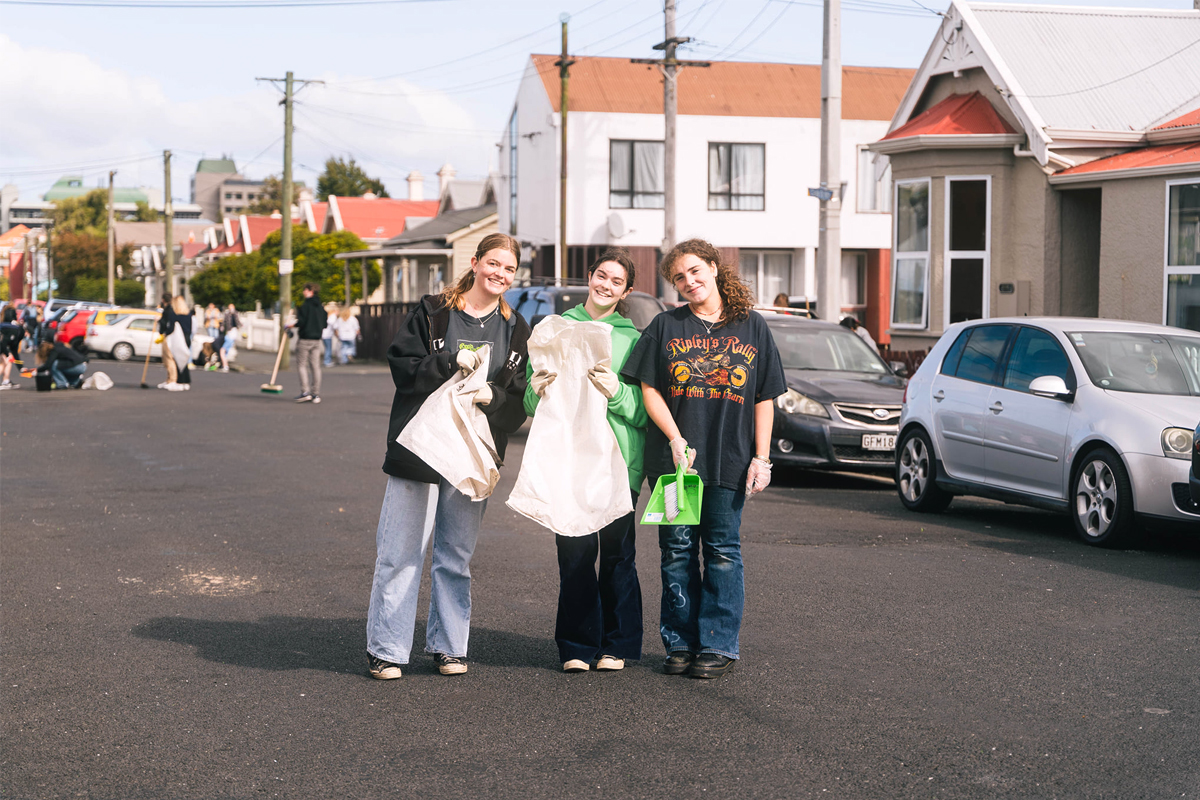
Environmental and social benefits
The benefits seen through operational outcomes:
- About 80 tonnes of waste is diverted from landfill each year through Drop for Good.
- Our University’s Recycling Centre gets inundated with used, dated furniture no longer suitable for our workplace but not ready for the skip which can be sold at Drop For Good. The event lets students to pay very competitive prices for furniture – e.g. desks, office chairs, filing cabinets, shelves etc – that are perfect for homes, flats, or garages rather than collecting dust then ending up in the landfill. This gives those items a longer life and helps create more equitable access to household goods.
- Students and staff see a working model of the circular economy.
- Encourages sustainable practices among students so it becomes the norm
- Hopefully helps decrease the consumption of mass production, which often involves human rights costs and environmental costs (chemicals, dyes, and water use etc)
- Items are locally sourced, not transported long distances
- Supported the trial of Social Impact Leave for staff to volunteer – staff used it on Drop for Good and Shop for Good – by providing opportunities. That leave is now permanently available.
The benefits seen through environmental and social outcomes:
- Peer-to-peer engagement and support
- Empowering students to create change and do things differently
- Providing more accessible and more affordable solutions to being sustainable
- Reusing clothing, furniture, and kitchenware that may have gone to landfill otherwise
- Staff supporting students at another level – staff regularly volunteer for Drop for Good which has created a genuine relationship of support between staff and students
- Providing solutions at a time of limited options because opportunity/charity shops stopped accepting items and skips seemed to be the only option for moving out of rental accommodation.
The benefits seen through sector benefits:
- We are leading by example in the tertiary sector in New Zealand, and possibly Australia.
Leadership and engagement
Drop For Good is authentically designed by students, for students, while being widely supported at the University from top down to ensure the initiative is well resourced, promoted, and set up for success through:
An Official Memorandum of Understanding between Toitū te Taiao and OUSA
This outlines each party’s commitment and obligations to ensure Drop for Good is continuously handed over from one OUSA Executive to the next year’s, and to ensure any income is spent to further support Drop for Good.
Being part of the Sophia Charter
The charter’s goal is that North Dunedin is a strong student neighbourhood where residents take responsibility for themselves, each other, and the wider community; it will be a place that is fun, vibrant, safe, secure and fosters student success and wellbeing. Drop For Good is captured under this charter, ensuring support is available from the charter partners if needed: The University, OUSA, Dunedin City Councl, New Zealand Police, Otago Property Investors, and Fire and Emergency New Zealand.
Circular economy model-building
Our unique initiative shows how successful the circular economy can be at creating support-based solutions for students. The mass of drops we handle is evidence of students’ need for Drop for Good.
We believe it is unique in New Zealand – and possibly Australia – to offer a large-scale drop and sale for a student community. The mass of goods that are diverted from landfill through this initiative is huge and relies solely on student engagement and OUSA student executives taking a leadership role.
Significance to the sector
Toitū te Taiao believes in community not competition, so we openly share knowledge.
This initiative is easy for any tertiary provider to adapt for its environment and students’ (or staff’s) needs. This model is designed to be financially self-sustaining, provide a space for sustainable engagement, empower students to drive positive change, and create exciting and unique outputs.
Creating initiatives that offer solutions is more important than ever to activate students to support the tertiary sector’s sustainability journey nationally and internationally as we see climate change issues becoming far more front-of-mind for our students and staff.
Wider societal impact
The wider societal impact we have seen from offering Drop for Good and Shop for Good include:
Increased social sustainability education and reduced inequalities
Sustainable solutions can sit in a space of privilege, especially when engaging with themes of reusable items, thrift shopping choices, and access to sustainable alternatives. By creating easily accessible, more affordable access to good quality household items and clothing, sustainable solutions have reached a wider demographic of students.
Mental health and wellbeing support
Drop for Good and Shop for Good help students with their mental health and well-being by providing support to dispose of unwanted items during the end-of-year stress of exam time and by providing support with finding affordable items during the stress of setting up for the year ahead as the cost of living keeps rising.
Sophia Charter connection
The goal of the Sophia Charter is that North Dunedin is a strong student neighbourhood where residents take responsibility for themselves, each other and the wider community; it will be a place that is fun, vibrant, safe, secure and fosters student success and wellbeing. Drop For Good sits under this umbrella of initiatives that aim to achieve this goal. With more engaged students eager to make sure their end of year does not have a negative impact on themselves and the environment, we will see a culture shift in the ‘typical’ behaviour of students throughout the coming years.
Learner/Graduate employer impact
Drop For Good offers students a support-based solution while also educating them about better waste management. Through this interaction, students gain qualities that support our University’s aim to foster attributes in all of our students that include:
Global perspective
Appreciation of global perspectives in the chosen discipline(s) and the nature of global citizenship.
Critical thinking
Ability to analyse issues logically, to challenge conventional assumptions, to consider different options and viewpoints, make informed decisions and act with flexibility, adaptability, and creativity.
Environmental literacy
Basic understanding of the principles that govern natural systems, the effects of human activity on these systems, and the cultures and economies that interact with those systems.
Teamwork
Ability to work effectively as both a team leader and a team member.
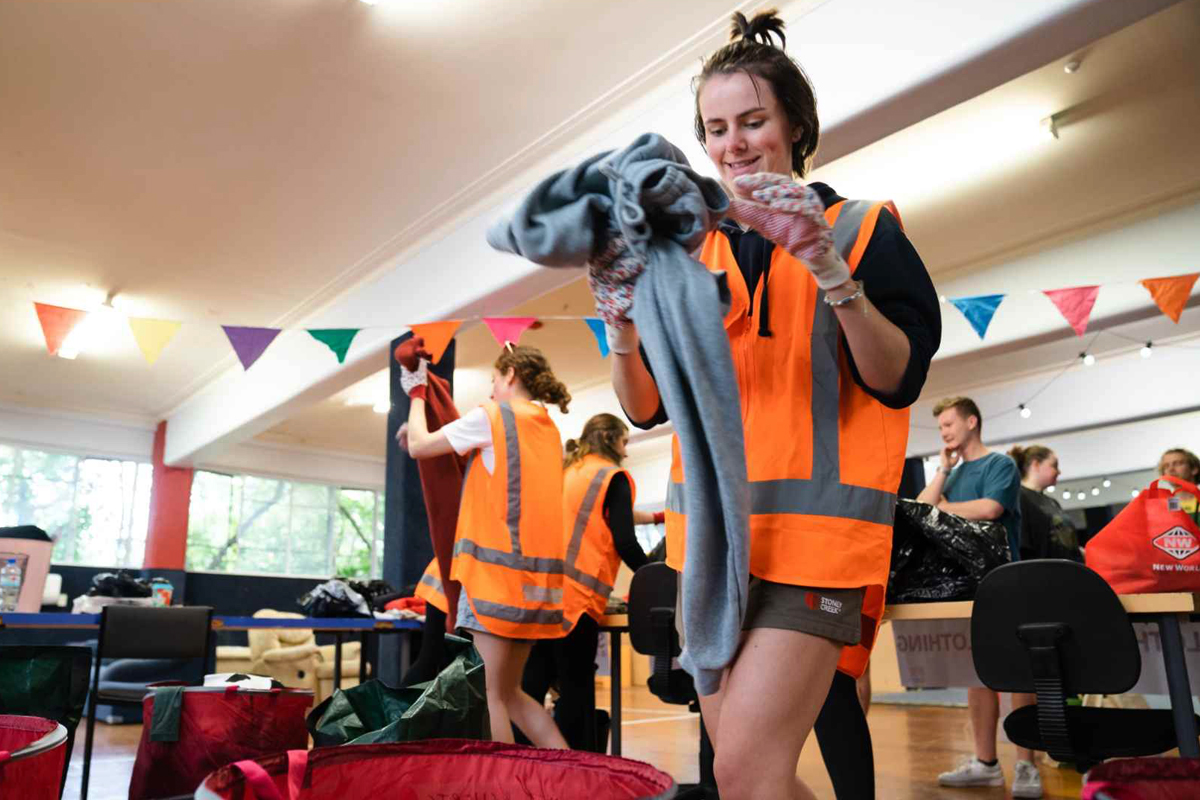
Top 3 learnings
Related finalists
Leading the Circular Economy/Winners
Leading the Circular Economy/Winners
Leading the Circular Economy/Winners
Leading the Circular Economy/Winners
Other finalists
Climate Action
Climate Action
Sustainability Champion – Staff/Winners
Sustainability Champion – Staff/Winners
Student Engagement
Student Engagement
Creating Impact
Creating Impact
Sustainability Champion – Staff/Winners
Sustainability Champion – Staff/Winners
Sustainability Champion – Student
Sustainability Champion – Student
Top 3 learnings
Leading the Circular Economy category
The University of Otago hosts 20,000 students every year and most live close to the Dunedin campus, creating student-dominated areas of predominantly unfurnished rental properties, which sparks two bottle-necks. At the start of every academic year, the demand for flat furniture and homewares rises, while at the end of the academic year, the need for waste diversion increases.
Drop For Good is designed to meet both those needs, using the circular economy model. A huge focus is on activating students through challenging dumping behaviours and buying new, by offering free, easy alternatives for packing up and setting up their flats. Drop For Good is also part of the Sophia Charter, designed to build a kaupapa of community responsibility and wellbeing in the students’ residential areas.
Drop for Good has two parts:
- Drop For Good – the collection of unwanted items in November
- Shop For Good – the sale of items in February (the following year)
Part one: DROP FOR GOOD
The University of Otago’s Toitū te Taiao – Sustainability Office and the Otago University Students’ Association (OUSA) launch the initiative Drop for Good in November each year. This collaboration coordinates the massive task of collecting students unwanted flat goods, which can be picked up for free or dropped off at a collection point. The goods include:
- Clothing
- Furniture
- Appliances
- Homeware
- Books
This event involes promoting it, coordinating volunteer support from staff and students, hiring moving vehicles, and sourcing Personal Protective Equipment and food, while also preparting space for sorting and safely storing the massive amount of goods. Collecting and sorting requires hundreds of volunteer hours and many hands.
Part two: SHOP FOR GOOD
Shop for Good in February the following year includes promoting the event and setting up of a store that hosts all the goods from the prior year. All items are tidied up, minor repairs are made if needed, and all electrical items are tag tested to ensure they are in good working condition. No items are sold for more than NZD$20 as the purpose is not to make profit, but to get resalable goods back to students without straining their finances
Over the past three years the initiative has coordinated 1,110 volunteer hours, collected about 213 tonnes of goods and sold about 3,700 items. Through the circular economy model of Drop for Good and Shop for Good we make sustainable solutions more accessible and more inclusive for students with limited financial means, all while reducing waste to landfill.

Environmental and social benefits
The benefits seen through operational outcomes:
- About 80 tonnes of waste is diverted from landfill each year through Drop for Good.
- Our University’s Recycling Centre gets inundated with used, dated furniture no longer suitable for our workplace but not ready for the skip which can be sold at Drop For Good. The event lets students to pay very competitive prices for furniture – e.g. desks, office chairs, filing cabinets, shelves etc – that are perfect for homes, flats, or garages rather than collecting dust then ending up in the landfill. This gives those items a longer life and helps create more equitable access to household goods.
- Students and staff see a working model of the circular economy.
- Encourages sustainable practices among students so it becomes the norm
- Hopefully helps decrease the consumption of mass production, which often involves human rights costs and environmental costs (chemicals, dyes, and water use etc)
- Items are locally sourced, not transported long distances
- Supported the trial of Social Impact Leave for staff to volunteer – staff used it on Drop for Good and Shop for Good – by providing opportunities. That leave is now permanently available.
The benefits seen through environmental and social outcomes:
- Peer-to-peer engagement and support
- Empowering students to create change and do things differently
- Providing more accessible and more affordable solutions to being sustainable
- Reusing clothing, furniture, and kitchenware that may have gone to landfill otherwise
- Staff supporting students at another level – staff regularly volunteer for Drop for Good which has created a genuine relationship of support between staff and students
- Providing solutions at a time of limited options because opportunity/charity shops stopped accepting items and skips seemed to be the only option for moving out of rental accommodation.
The benefits seen through sector benefits:
- We are leading by example in the tertiary sector in New Zealand, and possibly Australia.
Leadership and engagement
Drop For Good is authentically designed by students, for students, while being widely supported at the University from top down to ensure the initiative is well resourced, promoted, and set up for success through:
An Official Memorandum of Understanding between Toitū te Taiao and OUSA
This outlines each party’s commitment and obligations to ensure Drop for Good is continuously handed over from one OUSA Executive to the next year’s, and to ensure any income is spent to further support Drop for Good.
Being part of the Sophia Charter
The charter’s goal is that North Dunedin is a strong student neighbourhood where residents take responsibility for themselves, each other, and the wider community; it will be a place that is fun, vibrant, safe, secure and fosters student success and wellbeing. Drop For Good is captured under this charter, ensuring support is available from the charter partners if needed: The University, OUSA, Dunedin City Councl, New Zealand Police, Otago Property Investors, and Fire and Emergency New Zealand.
Circular economy model-building
Our unique initiative shows how successful the circular economy can be at creating support-based solutions for students. The mass of drops we handle is evidence of students’ need for Drop for Good.
We believe it is unique in New Zealand – and possibly Australia – to offer a large-scale drop and sale for a student community. The mass of goods that are diverted from landfill through this initiative is huge and relies solely on student engagement and OUSA student executives taking a leadership role.
Significance to the sector
Toitū te Taiao believes in community not competition, so we openly share knowledge.
This initiative is easy for any tertiary provider to adapt for its environment and students’ (or staff’s) needs. This model is designed to be financially self-sustaining, provide a space for sustainable engagement, empower students to drive positive change, and create exciting and unique outputs.
Creating initiatives that offer solutions is more important than ever to activate students to support the tertiary sector’s sustainability journey nationally and internationally as we see climate change issues becoming far more front-of-mind for our students and staff.
Wider societal impact
The wider societal impact we have seen from offering Drop for Good and Shop for Good include:
Increased social sustainability education and reduced inequalities
Sustainable solutions can sit in a space of privilege, especially when engaging with themes of reusable items, thrift shopping choices, and access to sustainable alternatives. By creating easily accessible, more affordable access to good quality household items and clothing, sustainable solutions have reached a wider demographic of students.
Mental health and wellbeing support
Drop for Good and Shop for Good help students with their mental health and well-being by providing support to dispose of unwanted items during the end-of-year stress of exam time and by providing support with finding affordable items during the stress of setting up for the year ahead as the cost of living keeps rising.
Sophia Charter connection
The goal of the Sophia Charter is that North Dunedin is a strong student neighbourhood where residents take responsibility for themselves, each other and the wider community; it will be a place that is fun, vibrant, safe, secure and fosters student success and wellbeing. Drop For Good sits under this umbrella of initiatives that aim to achieve this goal. With more engaged students eager to make sure their end of year does not have a negative impact on themselves and the environment, we will see a culture shift in the ‘typical’ behaviour of students throughout the coming years.
Learner/Graduate employer impact
Drop For Good offers students a support-based solution while also educating them about better waste management. Through this interaction, students gain qualities that support our University’s aim to foster attributes in all of our students that include:
Global perspective
Appreciation of global perspectives in the chosen discipline(s) and the nature of global citizenship.
Critical thinking
Ability to analyse issues logically, to challenge conventional assumptions, to consider different options and viewpoints, make informed decisions and act with flexibility, adaptability, and creativity.
Environmental literacy
Basic understanding of the principles that govern natural systems, the effects of human activity on these systems, and the cultures and economies that interact with those systems.
Teamwork
Ability to work effectively as both a team leader and a team member.

Related finalists
Leading the Circular Economy/Winners
Leading the Circular Economy/Winners
Leading the Circular Economy/Winners
Leading the Circular Economy/Winners
Other finalists
Climate Action


Driving Towards Tomorrow’s Campus with Vehicle-to-Grid EV Technology
As part of Flinders University’s drive to innovate and become a leader in climate action, the University launched its Vehicle-to-Grid (V2G) initiative. This involved installing and maintaining 20x V2G and smart chargers for its growing electric vehicle fleet. Leveraging 100% renewable energy generated by ENGIE’s Willogoleche Wind Farm and Flinders University’s solar power systems, this enables the storage of renewable energy in EV batteries to be discharged on campus during peak demand periods. Hence, allows for these EV fleets to operate as a Virtual Power Plant (VPP) to deliver peak demand management and optimization of behind-the-meter generation.
Overall, this initiative demonstrates the reliability and scalability of bi-directional and uni-directional smart-charging systems for EVs in reducing GHG emissions while facilitating teaching, research, and innovation opportunities. Moreover, it exemplifies a sustainable and innovative solution to scale energy storage technology and increase renewables.
Sustainability Champion – Staff/Winners

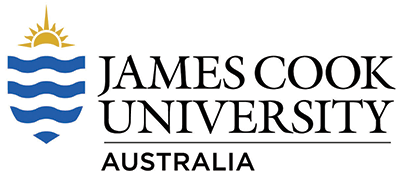
Brandan Espe
Environmental Officer / Acting Grounds Supervisor
Brandan has brought over 50 federally listed Endangered species of plant into the James Cook University living collection, many of which have never been cultivated and are found in no other collection in the world.
Of these, over half have been sustainably wild collected, inclusive of field and clone data, so they can be used for ongoing conservation, research and teaching, the remaining being sourced from private and partner organisations through favours of service or trades.
He personally funded the project from 2019-2022, until funding was awarded for the program due to its success, with the program now being engrained into the Universities landscapes for ongoing management should he leave JCU, creating a threatened species legacy collection.
The program has now expanded beyond this, with an additional 48 species now funded for further addition, some of which are only known from less than 5 sightings in history.
Student Engagement


Sustainability Leaders creating real impact!
La Trobe created a unique Sustainability Leaders volunteering program to increase engagement with students on campus and empower them to act against waste and promote sustainability. It included the following initiatives:
- Promoting the reusable crockery implementation,
- Increasing knowledge action of other students on campus to diversion comingled recycling and organic waste from landfill.
- Focus on waste audits and data,
- Improved signage through new waste posters for students living on campus.
- Collaboration with Cirka (our cleaning and waste partner) to create a waste wall and;
- Learning all things sustainability (net zero, biodiversity, waste, reusables, engagement)
These initiatives yielded significant results and with a reduction in waste contamination by almost 40% at the residential buildings and engagement with over 80 groups of people for the Reusable Revolution.
Creating Impact


Where knowledge meets habits: Empowering students for a sustainable tomorrow
Our online Sustainability Challenges offer participants an engaging, self-paced learning experience centered around a specific United Nations Sustainable Development Goal (UNSDG). Requiring minimal resourcing and at zero-cost to participants, we’ve created replicable, compact, scalable, and impactful learning opportunities that result in real impact.
The Challenges follow a structured process that moves participants from knowledge gain to simple action to celebration, to establish small but mighty habits relating to waste and carbon emissions. This approach recognises that knowledge alone is often insufficient to drive behaviour change, and that ease of action and celebration are crucial components in creating sustainable habits.
Sustainability Champion – Staff/Winners


Catherine (CeeJay) Donovan
Veterinary nurse – Anaesthesia
From establishing the Massey Vet School Green Team to leading impactful initiatives, my commitment to environmental sustainability has been making waves. With the help of my team, I have accomplished numerous small, yet meaningful actions, including integrating a sustainability lecture for final year vet students and implementing battery recycling alongside rechargeable battery use. Our larger projects encompass the introduction of green waste and soft plastics recycling bins, an energy audit resulting in power-saving measures, and playing a part in a successful rubbish audit. I spearheaded the ‘6 in 6’ campaign, empowering individuals with six simple steps for workplace sustainability. Through the SustainaVet social media pages I help to educate and inspire peers nationwide. As the Massey School of Veterinary Science sustainability champion, I had the privilege of speaking at the annual veterinary conference on sustainability in clinical practice. Currently I’m conducting pioneering research on responsible cat waste disposal. Together, we’re forging a greener future, one initiative at a time.
Sustainability Champion – Student


Louis Walmsley
SDG Coordinator Monash Association of Sustainability, Office Bearer Monash Student Association’s Environmental and Social Justice Department, Masters of Environment and Sustainability Student
Louis is an exceptional student sustainability leader at Monash University. His passion and dedication to sustainability have made a significant impact on the community. Louis’s values revolve around sustainability, which is evident upon meeting him. He actively participates in various sustainability groups, demonstrating his commitment to creating a more environmentally conscious society.
One of Louis’s notable involvements is with Precious Plastic Monash, where he organizes remarkable events and fosters collaboration among like-minded individuals, student groups, and staff. His contributions to the Monash Association of Sustainability have allowed him to conduct valuable research on plastic usage and climate action, resulting in positive changes within the university.
Through his work with the Monash Student Association, Louis has engaged hundreds of students in fun and interactive sustainability initiatives. He took the initiative to organize a sustainability food fair, which was one of the largest sustainability-related events held at Monash post-COVID. This accomplishment is a true testament to Louis’s hard work and creativity.
Louis is an outstanding student leader whose efforts in sustainability have had a lasting impact on Monash University and its community. His inspiring nature resonates with everyone who knows him.

